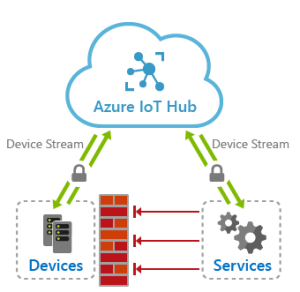Computer Hardware Recommendations for Game Developers
Introduction
As a game developer, having the right computer hardware is essential for a smooth and efficient workflow. Whether you are an indie developer working on smaller projects or a part of a larger game development studio, investing in the right hardware can greatly enhance your productivity and creativity. In this article, we will explore some key computer hardware recommendations for game developers.
1. Gaming PC vs. Workstation
When it comes to choosing the right computer for game development, you’ll likely come across two main options: a gaming PC or a workstation. Both have their own advantages and disadvantages.
A gaming PC is typically built for high-performance gaming, with a focus on powerful graphics cards and processors. While this may benefit your game development process in terms of real-time rendering and prototyping, it might lack certain features that are crucial for professional game development tasks, such as optimized threading for faster compilation and build times.
On the other hand, workstations are designed for professional tasks that demand high computational power. They often come with specialized features like multiple CPU cores, ECC RAM, and larger storage capacities. These features can significantly boost your productivity in resource-intensive tasks like rendering, compiling, and testing.
Ultimately, your choice should depend on your specific needs, budget, and the scale of your game development projects.
2. CPU and GPU
In game development, both the CPU (Central Processing Unit) and GPU (Graphics Processing Unit) play crucial roles. The CPU handles various background processes, including coding, compiling, and running game engines, while the GPU focuses on rendering graphics and visual effects.
For CPUs, prioritize high core counts and clock speeds to handle complex calculations efficiently. Consider CPUs from Intel’s Core i7 or AMD’s Ryzen series.
When it comes to GPUs, you’ll want to prioritize models with a high number of VRAM (Video RAM) for smooth rendering and fast texture loading. NVIDIA’s GeForce RTX series or AMD’s Radeon RX series are popular choices among game developers.
3. RAM and Storage
Having sufficient RAM (Random Access Memory) is essential for smooth multitasking and running resource-intensive applications. Aim for a minimum of 16GB, but consider going higher if you often work on large projects or employ memory-intensive software like Unreal Engine or Unity.
In terms of storage, it’s recommended to have a combination of solid-state drives (SSDs) and hard disk drives (HDDs). SSDs provide faster data access and boot times, which can significantly improve your workflow. Utilize SSDs for storing your operating system, frequently used software, and active project files. HDDs can be used for long-term storage, archiving, and less frequently accessed files.
4. Display and Input Devices
Investing in a high-quality monitor is crucial for accurately representing your game’s visuals. Look for monitors with good color reproduction, a high refresh rate (at least 60Hz), and a suitable screen size to fit your workspace.
Additionally, consider using dual monitors or ultra-wide monitors to expand your screen real estate, allowing you to have your code editor, game engine, and other tools visible simultaneously.
For input devices, consider a mechanical keyboard for its tactile feedback and precise key presses. A mouse with customizable buttons and high DPI (dots per inch) is also beneficial for accurate movements in level design or 3D modeling software.
5. Cooling and Power Supply
Intensive game development tasks can put a significant load on your hardware, causing them to generate heat. Proper cooling is crucial to maintain optimal performance and prevent overheating issues.
Consider investing in aftermarket CPU coolers, additional case fans, or liquid cooling systems to keep your hardware cool during extended development sessions. Regularly clean the components and ensure proper airflow within your computer case.
Additionally, having a reliable power supply with sufficient wattage and high efficiency ensures stable power delivery to your hardware, preventing unexpected shutdowns and potential data loss.
Conclusion
In conclusion, choosing the right computer hardware is essential for game developers to optimize their productivity and create impressive gaming experiences. Consider your budget, project scale, and specific requirements when selecting components such as CPU, GPU, RAM, storage, display, and input devices. Ensure proper cooling and invest in a reliable power supply to maintain the longevity and stability of your system. With the right hardware, you can bring your game development ideas to life more efficiently and effectively.

